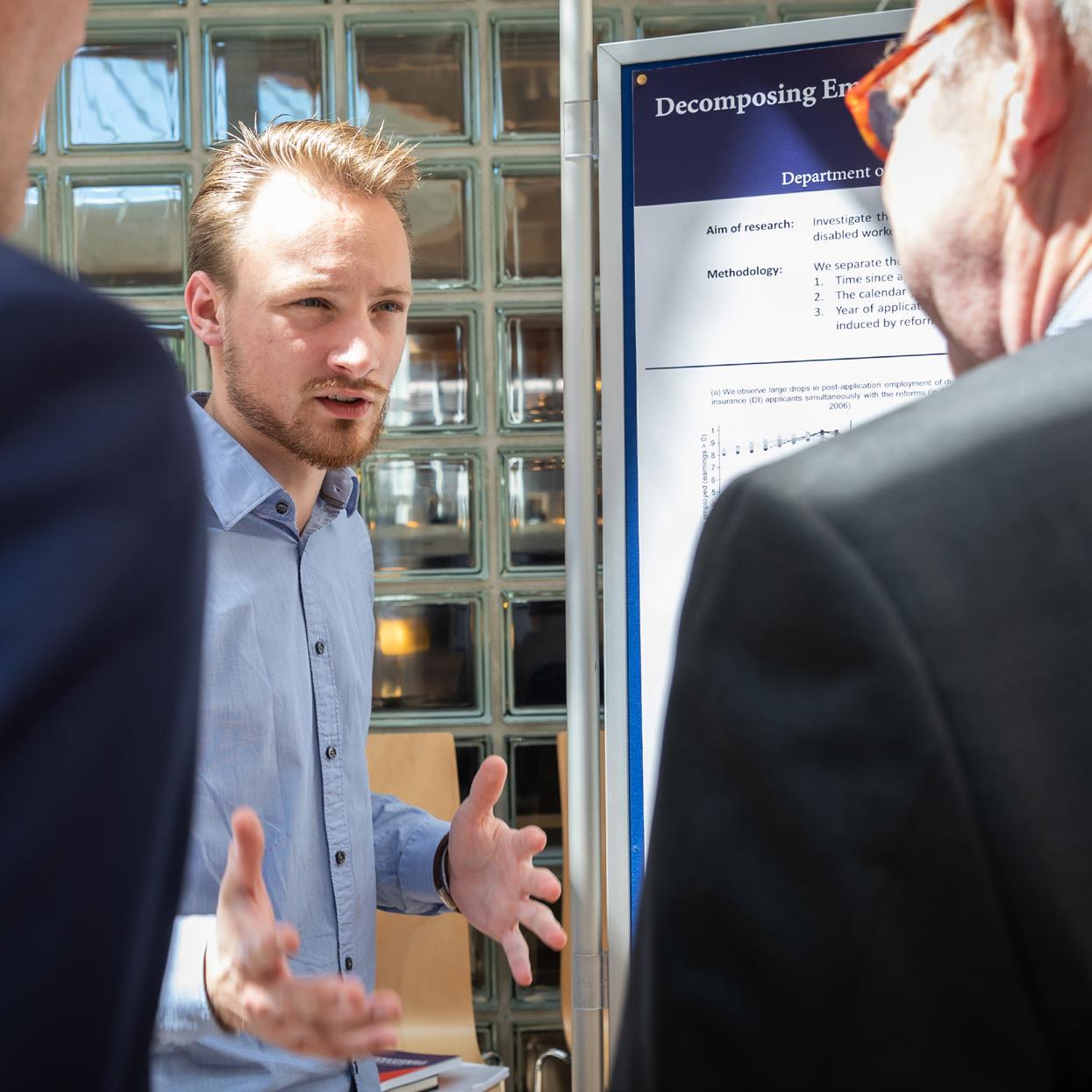
2 minute read
Contributing to our society
from Impact with Law
In our teaching and research we aim to achieve as much social relevance as possible. This involvement begins close to home. We consciously invest in the relationship with our alumni. We regularly organize alumni activities to keep them involved and to inform them about what we are doing.
Sometimes, rather further from home, such as in Shanghai or Jakarta. Many of our alumni have warm feelings for their old faculty and make annual donations to the Leiden University Fund, enabling extra research. In addition there are named funds, varying in size, that make an amount available each year for legal research. It was particularly special that in 2016 the courtroom for Moot Court could be opened in the Kamerlingh Onnes Building thanks to a crowdfunding campaign which many alumni contributed to.
Advertisement
Contributing to social debate
Scholarly publications are important, but we also want to show that we operate at the heart of the society. Where relevant, we try to reach a broader public. For example, by giving advice, lectures that are open to the public, interviews, training courses and conferences. Our lecturers and professors and regularly invited to take part in national media by shining their light on topical issues. Our active study associations stimulate debate and regularly invite speakers for events.
To be part of the debates in society, Leiden University has formed a number of important, topical research dossiers. The dossiers our faculty deals with are international tax law, international public law, Europe and a fitting punishment.
Linking to the UN development goals
In our teaching and research we make a link where possible to the Sustainable Development Goals of the United Nations. These sustainable development goals determine the global sustainable development agenda up to 2030. Poverty reduction, peace, gender equality, fair work, climate action – all goals have a direct or indirect link to a stable judicial system. Using our knowledge and expertise, we are pleased to make an active contribution. For example, with the Leiden Advocacy Project on Plastic (LAPP), of Esther Kentin, lecturer in International Law. LAPP was set up to examine and answer legal questions that are connected to the growing problem of plastic pollution.
Studying and conducting research in freedom
At Leiden University, freedom has always been paramount. Our current motto Praesidium Libertatis (bastion of freedom) has its origins in a print listing the names of all professors from 1575 onwards. Since 1917 the text also displays the University seal. The protest speech given by the Faculty of Law dean Rudolph Cleveringa in 1940 against the dismissal of his Jewish colleagues is commemorated each year in the Cleveringa lectures that are held throughout the world. We still view this motto as being one of our most important assignments: providing students and researchers with freedom and using our teaching and research to achieve more just societies with freedom of expression. Honorary doctorates have also been awarded by our faculty to freedom fighters such as Winston Churchill and Nelson Mandela.
Working with UNICEF
For years our faculty has worked closely with Unicef in the Netherlands. Outcomes of this collaboration include: w Unicef Chair in Children’s Rights w Part-time Chair in Children’s Rights in the Developing World w Annual Summer School Frontiers of Children’s Rights w Master’s degree programme Jeugdrecht (Child Law) w Advanced Master Studies Programme in International Children’s Rights w Various publications on research into children’s rights
To give substance to children’s rights, academic research and teaching on children’s rights to students and professionals is of crucial importance. With support from Unicef in the Netherlands we are therefore developing an international expertise centre for children’s rights. ■







